Chichester’s animal dentist who cares for the teeth of wild tigers, lions and bears


The father of three, who is the head dentist at Grange Dental Surgery, Chichester, would be forgiven for being a bit fearful himself of the clientele he began working with in 2002 – let’s just say they have a bit more bite than his human patients.
Paul, 58, who lives in East Hampshire, began working with the charity International Animal Rescue (IAR) 17 years ago and in that time he has travelled to India, Borneo, Costa Rica, Java and Armenia to work with vulnerable animals.
Advertisement
Hide AdAdvertisement
Hide Ad‘I love working in the sanctuaries. If it wasn’t for school, I’m sure my wife and children would want to come with me,’ he laughs.
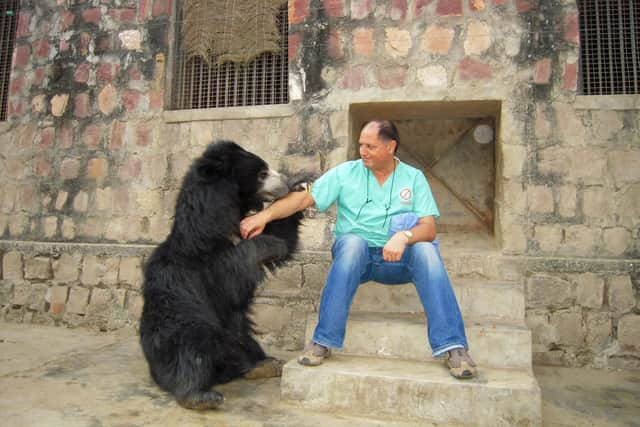

Paul explains how working with animal teeth is a completely different ball game to working with human teeth, but he loves the challenge.
‘A lot of people ask me if animal teeth are similar to human teeth and if can we work on them similarly – obviously, that's not quite true.
‘It’s not like every human dentist confronted with one of these animals would know what to do.
Advertisement
Hide AdAdvertisement
Hide Ad‘Animals’ teeth – especially the bears, tigers, lions and even hyenas – are monstrously big compared to our teeth,’ explains Paul.
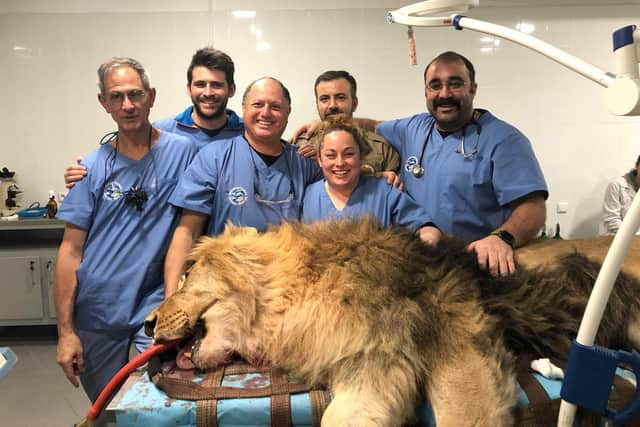

‘The equipment that we use is basically human equipment but it’s larger which helps with the animals’ teeth.
‘Animals suffer from similar oral diseases to humans so they do need special care.’
International Animal Rescue has centres across the world and relies on donations to cover the costs of flying volunteers out to the sanctuaries and medical equipment.
Advertisement
Hide AdAdvertisement
Hide AdThe sanctuaries give the animals a ‘new lease of life’ by giving them vast areas to roam; however, most cannot be released into the wild because they wouldn’t be able to survive.
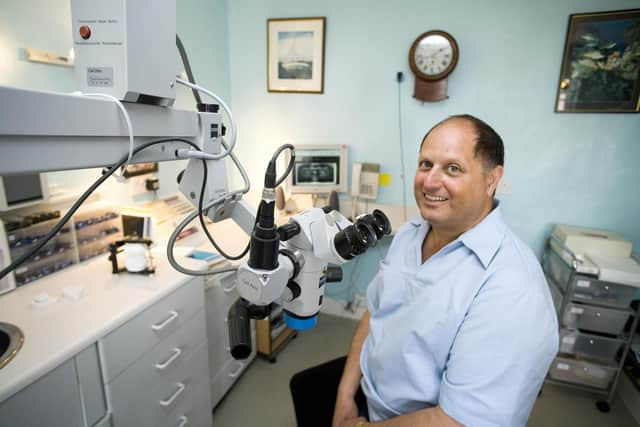

Paul’s most recent trip took him to Yerevan, the capital of Armenia, in November 2018 where he worked primarily with bears that had been rescued from captivity.
‘I worked on a bear who had snapped a tooth and was in a lot of pain. We then study behavioural changes in these animals from before dental surgery and then after. It’s good to see that they feed better and act happier.
‘It gives you a great sense of satisfaction,’ he smiles.
Is he ever intimidated or scared by the sheer size of the animal on the operating table in front of him?
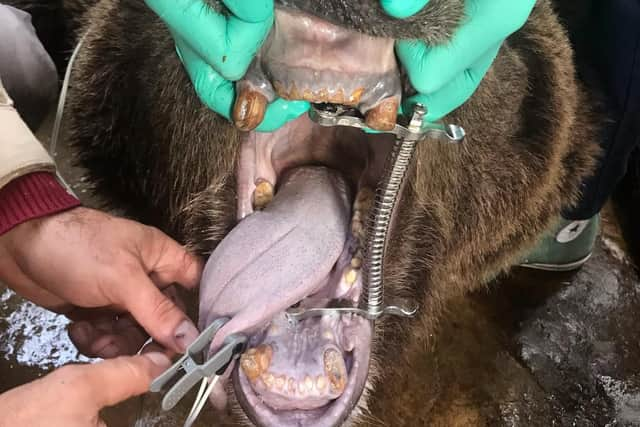

Advertisement
Hide AdAdvertisement
Hide Ad‘We work in a very professional team but to say I don’t get scared would be wrong.
‘All of the trips and animals are equally great. Stroking such animals is very special.’
Paul began working for the charity in 2002 alongside his good friend Lisa Milella and together they helped hundreds of animals.
‘I needed to find a vet who could help me on the projects,’ explains Paul.
Advertisement
Hide AdAdvertisement
Hide Ad‘Vets know nothing about teeth but I googled veterinary dentists and I happened to come across Lisa Milella.
‘When I told her about the project with 600-800 bears with four broken teeth in India that we needed to help, she immediately said that she’d help.
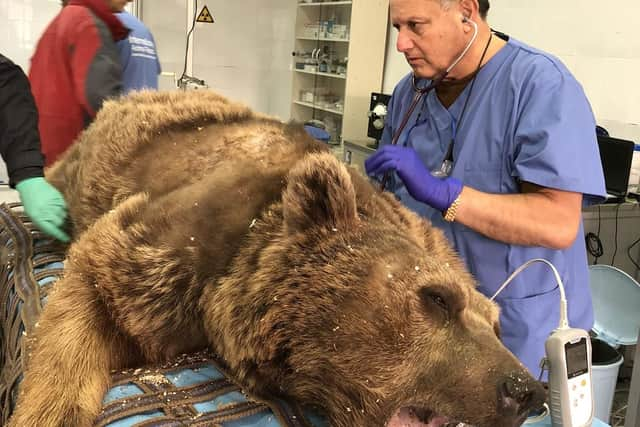

‘Lisa brought to the project a vast level of experience and skill and learning which complemented what I was trying to achieve. Lisa and I worked together for 12 years until she was diagnosed with motor neurone disease five years ago.
‘She is still actively involved in the charity as a trustee and the Armenian trip was dedicated to the Lisa Milella Veterinary Dental Fund.
Advertisement
Hide AdAdvertisement
Hide Ad‘We are raising money to help people who want to help animals with tooth problems anywhere in the world and carry forward her legacy.’
Paul, who is a trustee of the IAR, vows to carry on working with the charity for as long as he can and wishes he could dedicate more time.
However with a full-time job and family, he says its not always possible.
‘The highs of the trips for me include the challenge of treating an exotic animal, getting the team together to do the work efficiently and the satisfaction of knowing that you leave the animals in a better position once they finish their treatment than before their treatment.
Advertisement
Hide AdAdvertisement
Hide Ad‘Working with fantastic people who are very dedicated is always an enjoyable thing.
‘It’s a charity very close to my heart,’ smiles Paul.
Find more information on the charity at internationalanimalrescue.org.uk.
Rescuing, protecting and rehabilitating
As human populations expand, wildlife is increasingly under threat.
However, International Animal Rescue works to save individual animals belonging to one species and reintroducing them into protected areas in the wild, playing a role in the conservation of the species as a whole.
Advertisement
Hide AdAdvertisement
Hide Adnternational Animal Rescue, based in Uckfield, West Sussex, works closely with teams in India, Indonesia, Armenia, Costa Rica and Malta to ensure the projects run smoothly.
The charity aims to save animals from suffering, rehabilitate them and then release them back into the wild while working to protect their natural habitats.
They work to return animals to their natural environment but also provide a permanent home for those that can no longer fend for themselves. The charity also works with other organisations and government departments to strengthen legislation to protect animals from cruelty and neglect.
Their projects have included cutting free and caring for captive bears in India and Armenia, rescuing and rehabilitating orangutans in Indonesia and treating injured and orphaned howler monkeys in Costa Rica.